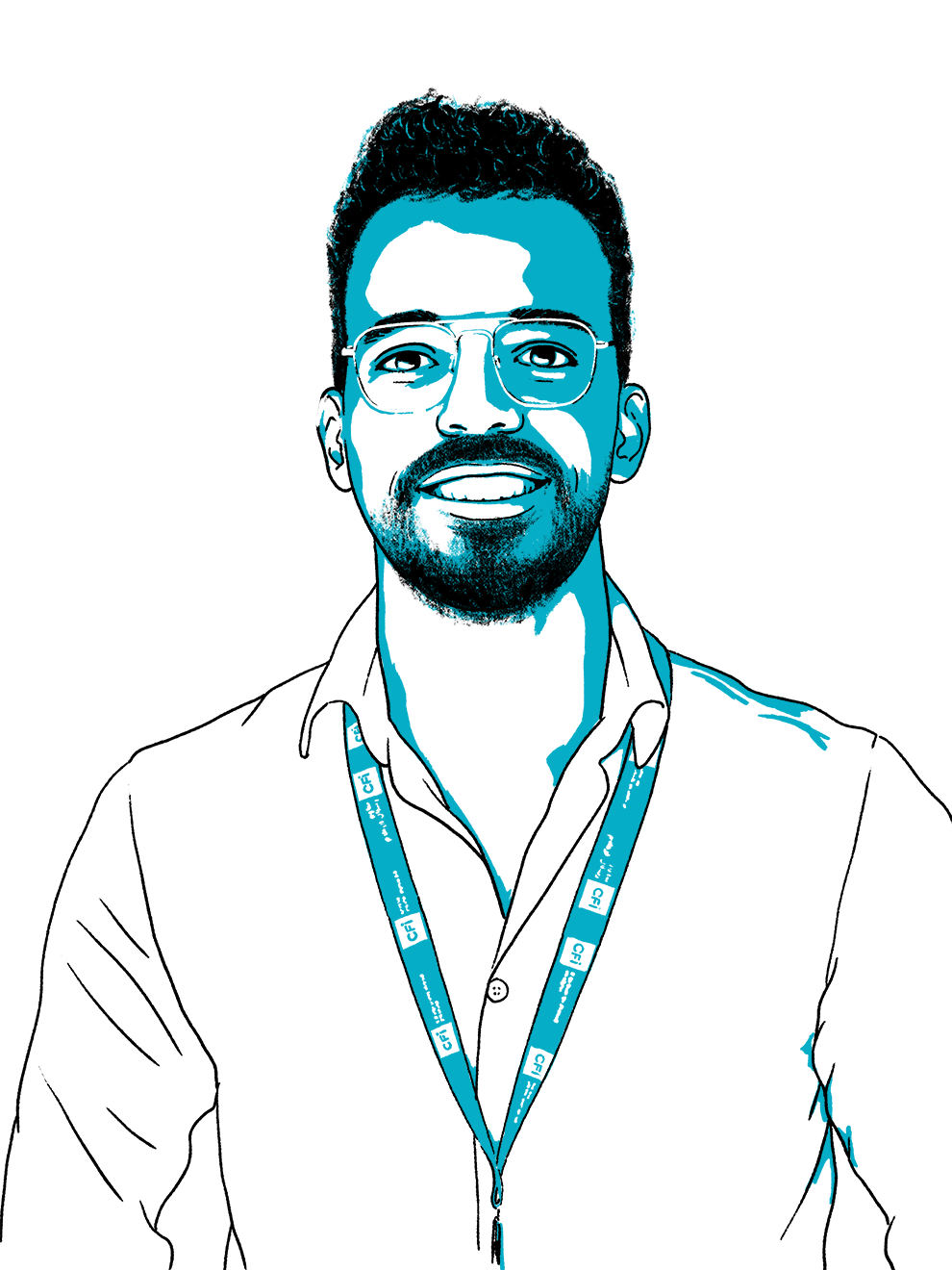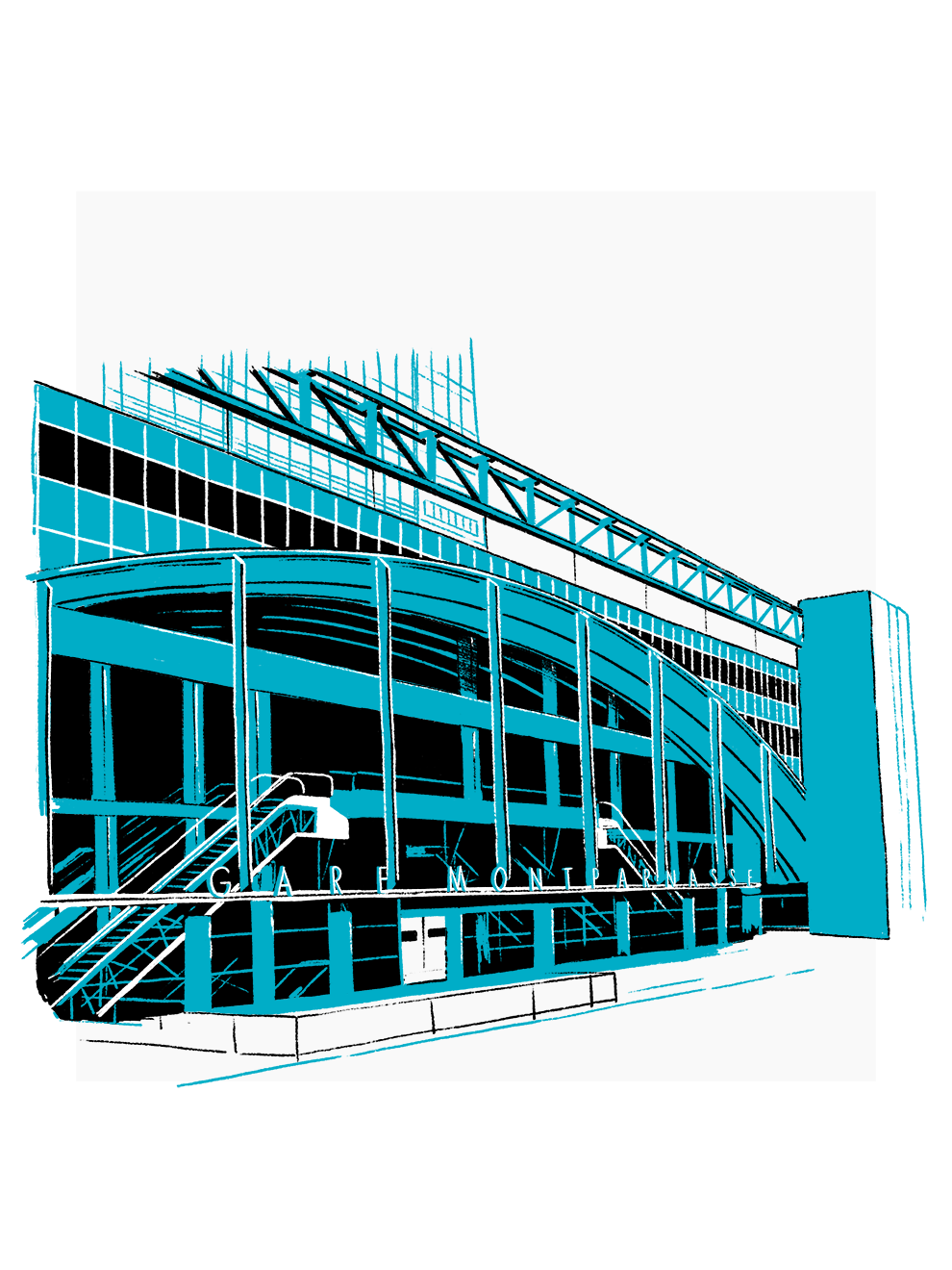Pierre-Florentin Champel: “gateway” to the Communications team
Pierre-Florentin is the Project Communications Manager at CFI. Both a coordinator and the “gateway”, as he has been nicknamed within the team, Pierre-Florentin works to promote the agency and highlight its programmes. We take a look at his career, between Paris and Le Mans.

Pierre-Florentin, what does your job at CFI entail?
My role is to communicate about our projects and raise their visibility among various target groups, such as beneficiaries, donors and partners. When project managers want to communicate about their activities, they come to me. I then suggest a whole range of communications options, which I then implement with the help of my colleagues, mainly the social media and publishing managers, and various service providers. I’m like the orchestra’s conductor. I manage and coordinate the project from start to finish, deploying the right people so that everything gets done on time. Right now, I’m also working on something that is quite new for me: organising the CFI Media and Development Forum, scheduled in Paris for 11, 12 and 13 July.
How did you end up working for CFI?
I joined in July 2020, right in the middle of the Covid pandemic! My onboarding process was completely remote. I was originally recruited on a six-month fixed contract to create an advice site for journalists, within the Communications Department. Carrying out this assignment without really understanding the agency’s environment and premises and even what my colleagues looked like was no easy task. But I was able to adapt. Once I had finished this assignment, I started working on communications projects. That went well and the Department needed more staff, so I was hired permanently in my current position as Project Communications Manager.
Why did you choose CFI?
After completing my studies, I worked for Total for four years, as a project manager for local development projects. The goal was to improve living conditions for people in the regions covered by the projects by establishing schools, training teachers, technicians etc. It was an interesting job, but Total have a certain reputation and the business aspect was too much for me. I wanted to carry on working on development projects, but without this overly present focus on profit. I set up a company with some friends and then Covid arrived. I had to change strategy. I applied to CFI at the recommendation of an acquaintance, and then, after an interview in a restaurant, because CFI was closed during the pandemic, I was hired!

What is your greatest source of satisfaction in your day-to-day job?
I love the relationship aspect of my job. I’m in contact with a large number of people, mostly at head office. As the teams have the option of working remotely two days a week, we arrange to be in the office on the same days to facilitate our discussions. I also love the spirit of independence and trust, forged by a flexible manager who delegates readily. In terms of assignments, I prefer event management. I am especially delighted to help organise the Media and Development Forum. This is the first time that I have managed such a big event: 300 people from 45 countries are expected to attend in person, as well as those attending remotely. There’s a certain amount of pressure but it’s a great challenge; and at the end, I will see the tangible results of my efforts!
What is the most difficult part of your day-to-day job?
I have to manage an ever-increasing number of projects at the same time – 24 projects for Africa and 19 projects for the Mediterranean region and Asia – which all have very different timelines, contexts and challenges. Each project is broken down into an infinite number of micro-tasks, things to be monitored and checked... It’s sometimes a bit much for one person! Luckily, I have good project management tools and cooperative colleagues who take the initiative and show a great deal of professionalism.
What are the main qualities needed to carry out your duties?
It is, of course, important to be extremely well organised. Given the number of projects and events that need to be managed, nothing can be left to chance or approximation. Anticipation is also a key requirement: as part of an event, for example, you need to think of everything, from promotional items, to visual materials and video editing... Lastly, you need to be at ease with human relations, to ensure discussions that are as smooth as possible, speedy progress, and ensuring that everyone is on the same page.
And what are your hopes for the future?
I hope to travel a bit more, consolidate my communication skills and, above all, build up the event management aspect.